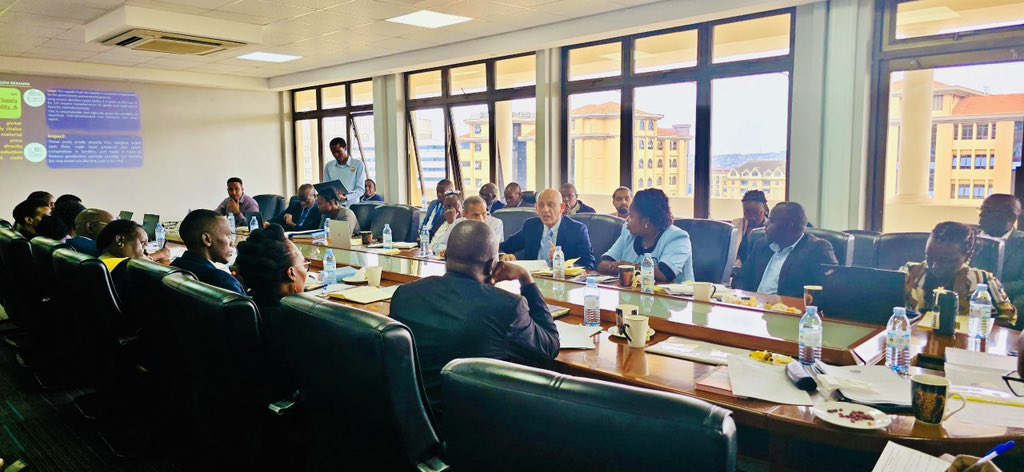
Kampala, Uganda – May 8, 2025 – The Uganda Manufacturers Association (UMA) recently held a pivotal meeting with the Ministry of Finance, Planning and Economic Development (@mofpedU) and the Public Procurement and Disposal of Public Assets Authority (@PPDAUganda) to discuss strategies for advancing the Reservation Scheme for Government Procurements.
The dialogue, aimed at bolstering local manufacturing and economic empowerment, addressed critical challenges facing Ugandan manufacturers and proposed actionable solutions to enhance their participation in public procurement processes.
Key Issues Raised
The meeting spotlighted three major concerns affecting the competitiveness of local manufacturers in government procurement:
- High Operating Costs & Financing Challenges
Manufacturers highlighted the burden of elevated operational costs, including energy, raw materials, and logistics, which undermine their ability to compete with foreign suppliers. Limited access to affordable financing further exacerbates the issue, restricting investments in technology, capacity expansion, and innovation. UMA emphasized the need for targeted financial interventions, such as low-interest loans and subsidies, to level the playing field. - Supply Chain Vulnerabilities
The discussion underscored the fragility of supply chains, particularly for manufacturers reliant on imported raw materials. Global disruptions and fluctuating costs have exposed local industries to risks, impacting their ability to deliver timely and cost-effective products. Stakeholders called for policies to strengthen domestic supply chains, including incentives for local sourcing and investments in supply chain resilience. - Discriminatory Criteria and Standards
Manufacturers raised concerns about procurement criteria and standards that inadvertently favor foreign suppliers. Complex bidding requirements, stringent certification processes, and unrealistic timelines often exclude local firms from participating effectively. UMA advocated for revising these criteria to prioritize local content and create a more inclusive procurement framework.
A Step Toward Economic Empowerment
The Reservation Scheme, designed to prioritize local manufacturers in government procurement, is a cornerstone of Uganda’s strategy to promote industrialization and economic self-reliance. By addressing the highlighted challenges, the scheme aims to unlock opportunities for local businesses, create jobs, and stimulate economic growth.
The collaborative efforts of UMA, the Ministry of Finance, and PPDA signal a commitment to refining the scheme’s implementation. Proposed measures include streamlining procurement processes, offering capacity-building support for manufacturers, and introducing safeguards to ensure fair competition.
Voices from the Meeting
“Advancing the Reservation Scheme is not just about procurement; it’s about empowering our local industries to thrive,” said a representative from UMA. “By tackling these challenges, we can build a robust manufacturing sector that drives Uganda’s economic transformation.”
Officials from
@mofpedU and
@PPDAUganda reiterated their dedication to fostering a conducive environment for local manufacturers. They pledged to work closely with UMA to implement reforms that align with the government’s broader economic empowerment goals.
Looking Ahead
The meeting marks a significant step toward strengthening Uganda’s manufacturing sector and ensuring that local businesses play a central role in government procurement. UMA and its partners are expected to continue these engagements, with follow-up discussions to finalize actionable policies and monitor progress.
As Uganda strives for economic empowerment, the success of the Reservation Scheme will depend on sustained collaboration, innovative solutions, and a shared vision for a thriving local industry.

0 Comments